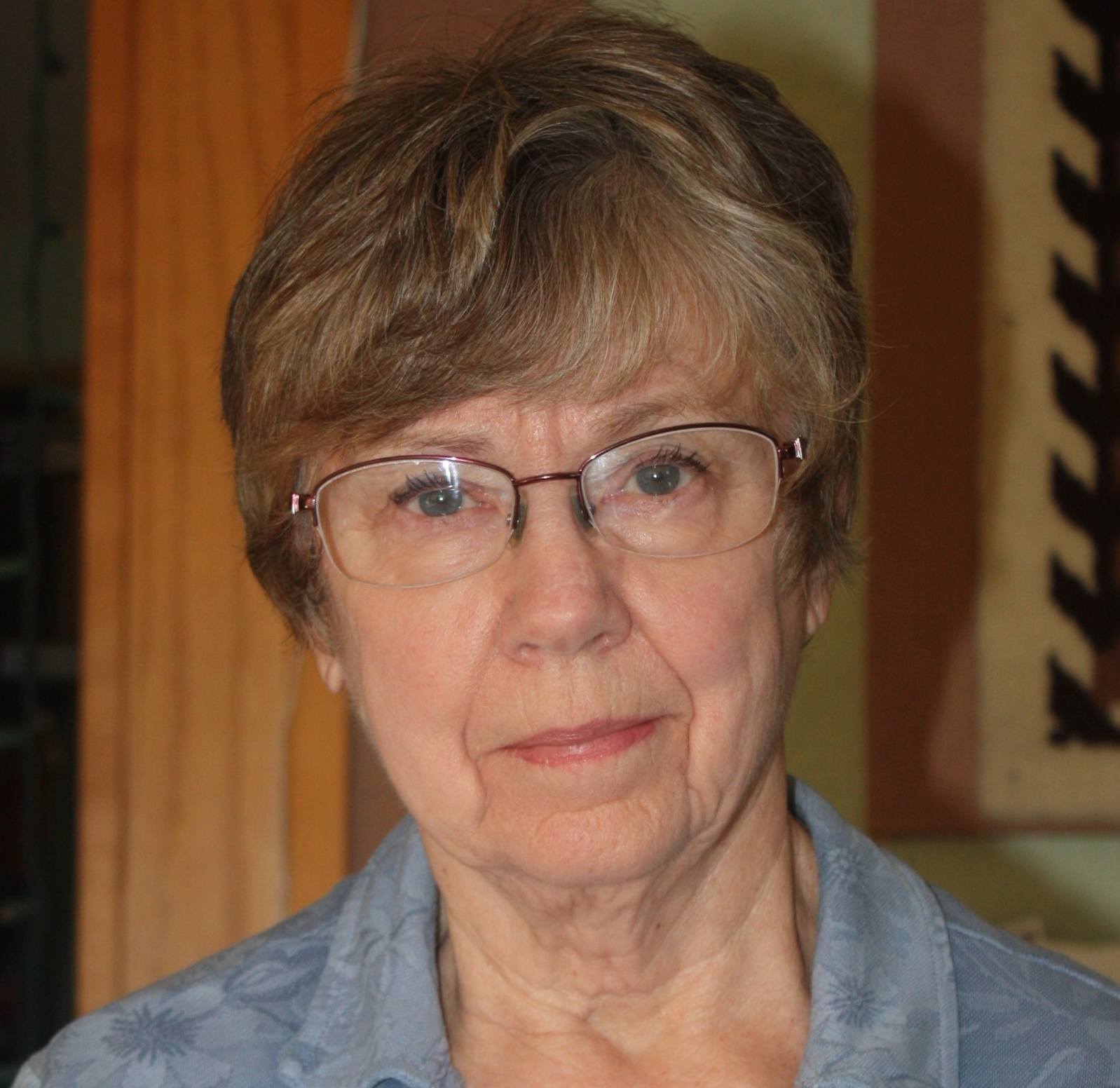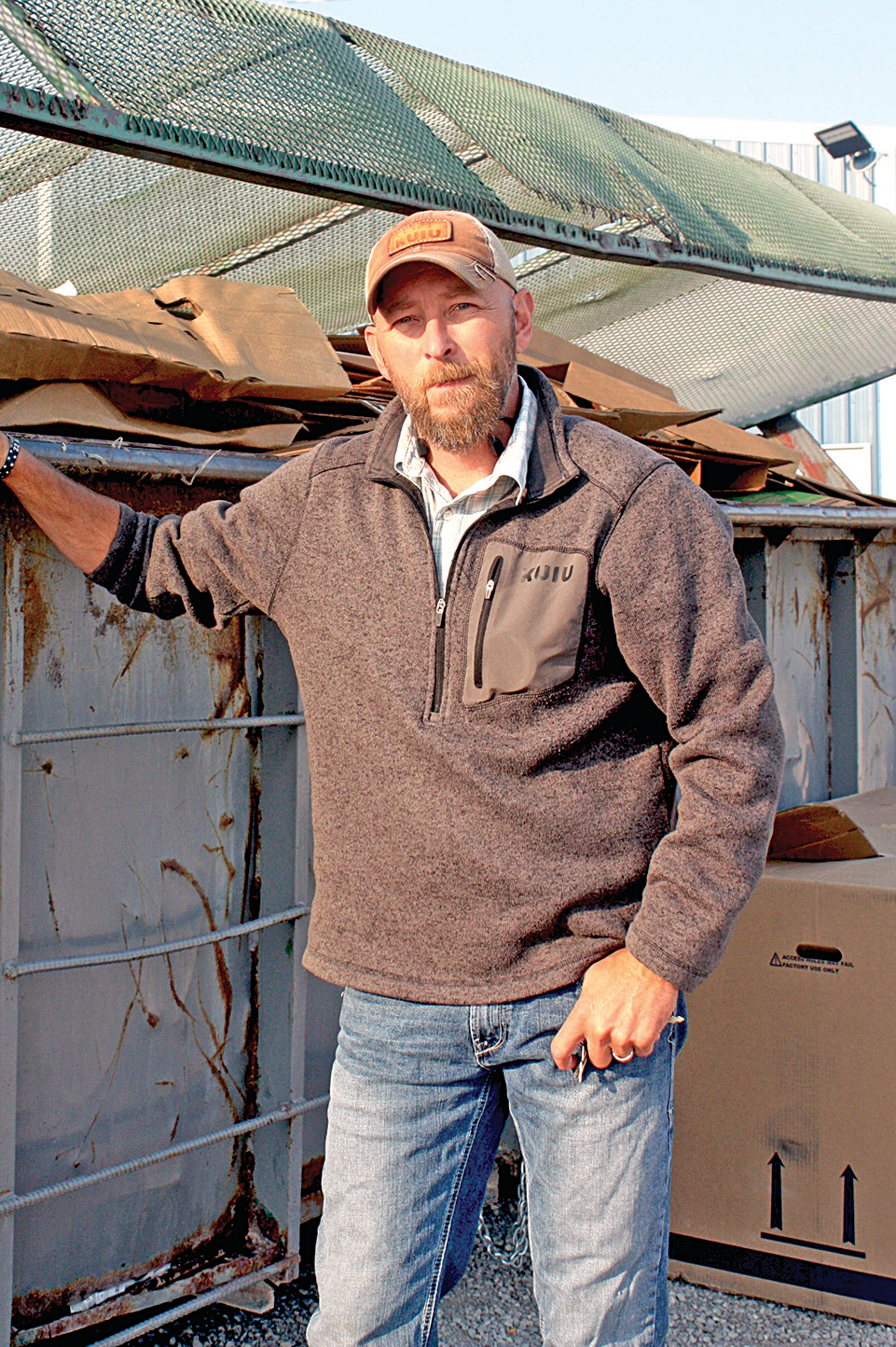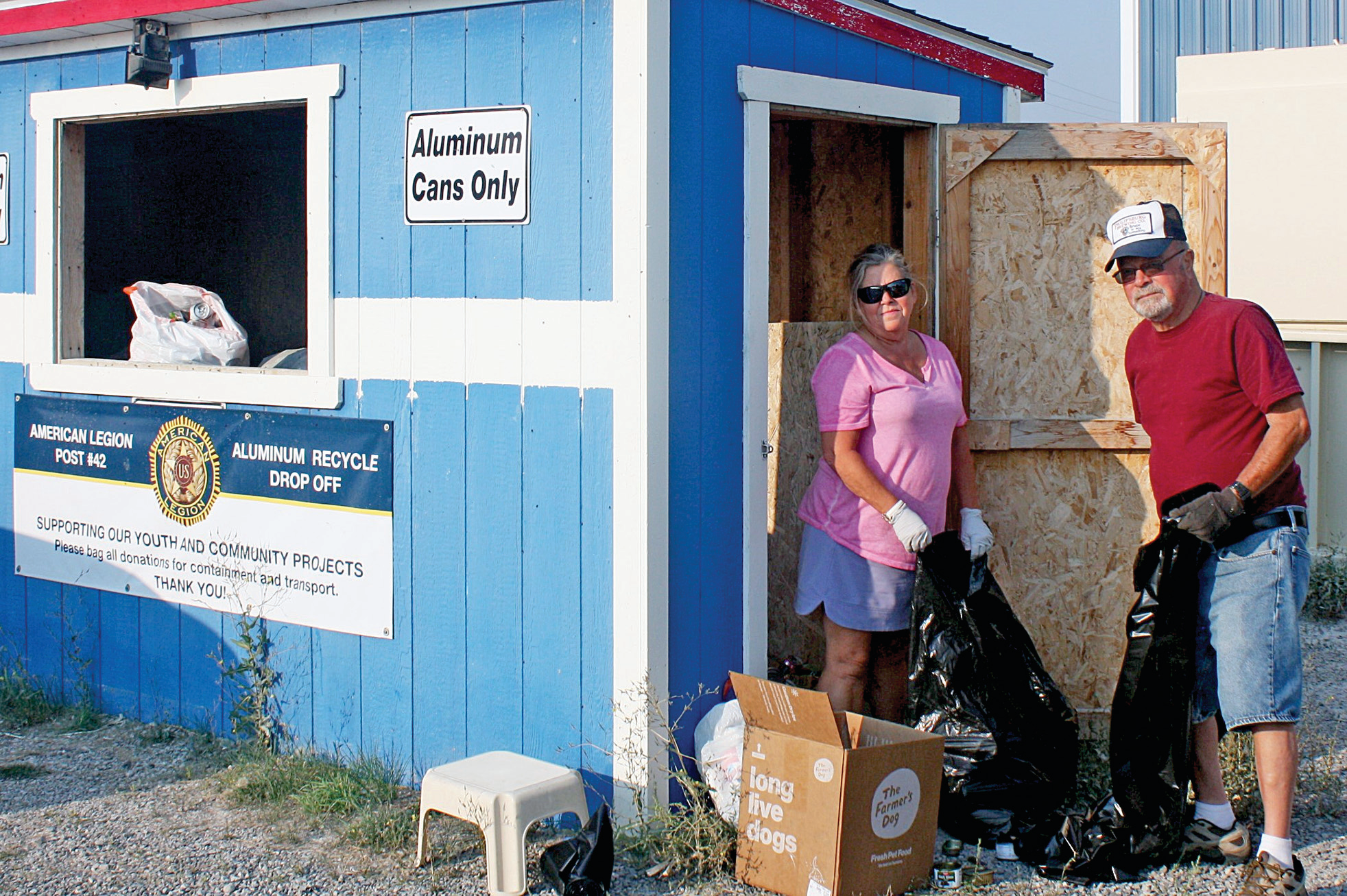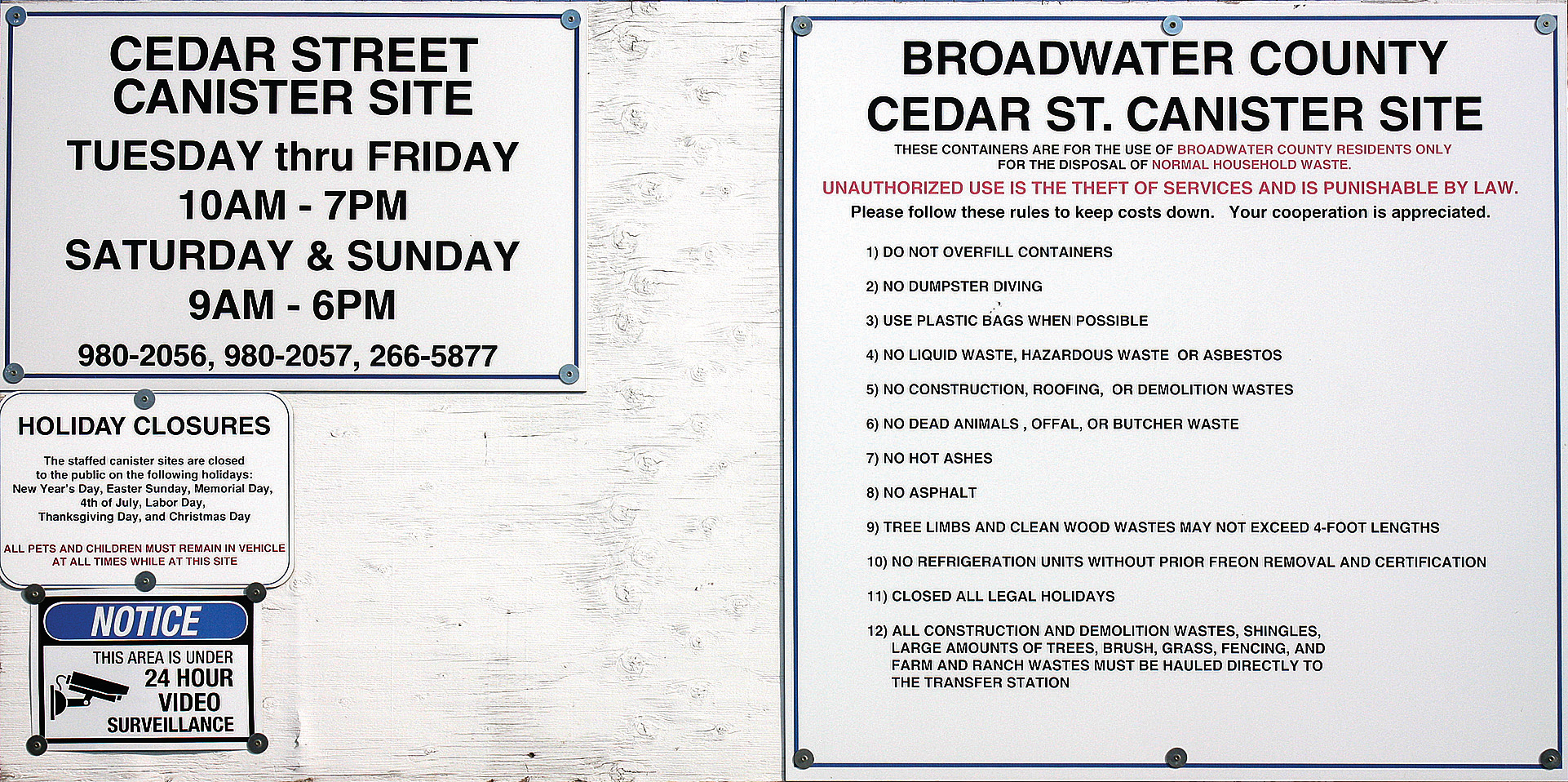Public Works Boss Turning Things Around
 | Author:
Nancy Marks
Nancy Marks: MT43 News Secretary and News Editor |
Garbage disposal and road maintenance are essential services everywhere, and in Broadwater County, the person in charge of both is Public Works Supervisor Josh Obert, a soft-spoken man with strong ideas about ways to improve the efficiency of his two departments.
In an interview Friday, Obert was first asked about recycling at Townsend’s Cedar Street dump station. “We take all metal such as washers and dryers. We take grass clippings, unpainted wood, tree limbs and paper,” he said. The newspapers and paper are picked up by J5 Recycling of Bozeman, he said.
Obert said the county no longer recycles cardboard because it costs $89 a ton to recycle. Still, the Cedar Street station has a canister dedicated to cardboard because people have been so good about breaking down their cardboard boxes. “We really appreciate having the cardboard knocked down, otherwise it takes up so much room in the containers which costs us more money in transferring to the Helena landfill,” he said.
All aluminum cans are collected in a shed for Townsend’s American Legion post which sells them to raise money. Winston Eager Beavers 4-H club handles the aluminum cans at the Winston dump station.
Obert explained that the Cedar Street station is no longer taking motor oil because the site was being abused. “People would put frying oil, kerosene, and other non-oil products in the container. Until we have a setup with full supervision, we cannot take oil.” Residents are encouraged to take used oil to folks who burn oil in their shops, or to the county shop.
Obert began the Public Works job in June of 2020. He had worked for Conoco Oil in oil fields as a construction contractor for 13 years. During that time, he trained as an efficiency expert.
One of Obert’s jobs is to advise the Solid Waste Board. Daniel Davis is the only active member of the advisory group so the board is not meeting regularly. Four board member seats are currently open.
Obert said that when he signed on with Broadwater County, the Solid Waste Department was $270,000 in debt. That included a $49,000 loan for new canisters. The department is now in the black and has a Capital Improvement Program fund of $250,000. “That money will go to replacing or repairing our two hook-lift trucks that are wearing out.”
Early in his tenure, Obert studied the routes used to pick up garbage at the five dump stations in the county. Sometimes twice a day, the hook-lift truck would go out to each station only to find a canister at Toston would be about one-eighth full, while two canisters of the six canisters at Winston would be overflowing. “At $5 a gallon diesel fuel, it was breaking us. The system just wasn’t working,” he said. Former county commissioner Jim Hohn told him about cameras that are used to check remotely on the status of dump canisters. Now the foreman can check daily on how full the canisters are at each station. The cameras also show if prohibited objects, such as dead animals or tires, are deposited in the dumpster and who used the dump. “We have installed ten cameras for $750 so far and have seen a one-third cut in diesel fuel use,” he said.
Obert said, “I try to listen to the employees to understand their ways of doing the work, and how they see the job. Then little by little I introduce new ways to make the work easier and more efficient.” He said he has introduced a leadership skills training model for his employees. Obert praised TJ Graveley, Roads and Bridges Department foreman, for exceeding the course and passing that on to his direct employees.
Graveley’s department in 2020 improved 1.6 miles of road, with gravel upgrades and culvert replacements. In 2021, 26 miles were improved. So far this year, 49.3 miles have been upgraded. Currently, there are 876 gravel roads in Broadwater County.
Improvement, Obert explained, means adding gravel and the chemical magnesium chloride to the surface of a road to help stabilize the surface and provide dust control. Such an addition cuts down on constant maintenance by the Road Department.
Previously, Price Road in the southern end of the county off Hwy. 287 surveyed at 800 vehicle trips a day. Because the road was so wash-boarded and full of potholes, Graveley’s crew had to either drive their graders at 4 miles per hour to the road or haul the graders on lowboys, sometimes twice a month. “After we were able to improve the road with 4 inches of gravel and add magnesium chloride, the roadbed hardened. We have not had to blade it for nine and a half months.” Obert said.
A survey of 270 vehicle trips a day made Ray Creek Road, off Hwy. 284, a dangerous and dusty road to travel. Since then, the road from Hwy. 284 turnoff to where the road splits has been upgraded. “Every gravel road we improve cuts our maintenance use. It has added one-third life to the graders we use,” he said.
Some people have complained that magnesium chloride is dangerously corrosive. Obert explained that originally road departments used calcium chloride, which is more corrosive. He said a new natural product has come on which is not corrosive. He is looking into purchasing some for a trial.
Asked about the role of Tri-County Disposal of Helena plays in Broadwater County’s solid waste picture, Obert praised the company for offering county residents the convenience of having their garbage picked up each week, rather than having to haul it to the dump site themselves. The garbage disposal company has a good relationship with the Solid Waste department. The private pickup lowers the amount of garbage that county trucks must haul. But the company weighs the amount it picks up and charges the county for hauling it to the Helena Landfill. The county pays for the disposal of the waste Tri County picks up. Tri-County only charges the customer for container rental.
Tri-County Disposal customers in Broadwater County have asked to be removed from the solid waste fee on their tax bills. Those county residents must still pay a portion of the disposal $29 per ton tipping fees charged to the county by the disposal company.
“The City of Townsend provides the same service for residents within the city limits,” he added.
Roads are a big issue in Broadwater County’s subdivision regulations. Obert is hoping that a Rural Improvement District with solid waste as a critical infrastructure section of the new regulations will be instituted. “Our study shows each new household generates 6,500 pounds of garbage per year,” he said, “We need to include solid waste in our subdivision rules.”
Article Images
Click on Image Thumbnail(s) to view fullsize image
PhotoCredit: Nancy Marks
Image 1 Caption: Public Works Supervisor Josh Obert with the Cedar Street cardboard cannister. Credit: Nancy Marks
Image 2 Caption: American Legion Auxiliary President Debbie Westphal and Chaplin Larry
Westphal separate aluminum cans from unwanted items at the Cedar Street
Solid Waste Station. American Legion members volunteer for the recycling
project to raise money to fund their annual Broadwater High School senior
scholarships. According to volunteer Tim Pool, the group hauls 260 pounds of
aluminum cans twice a month to Helena. The work, excluding their donated time
and gas money, nets the Legion about $250 per month. Mr. and Mrs. Westphal
asks the recycling public to only put aluminum cans in the bin. Please do not
recycle tin cans or garbage. “We have to pick out the tin cans and garbage
by hand, which is a miserable, dirty job,” Debbie said. Credit: Nancy Marks
Image 3 Caption: Cedar Street Sign. Credit: Nancy Marks.


